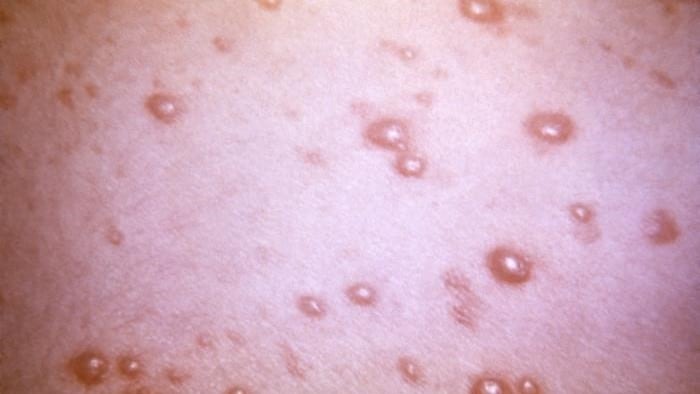At a glance
The virus that causes chickenpox and shingles is spread through direct contact with fluid from the rash blisters caused by shingles. A mother with shingles may be able to continue breastfeeding if she does not have skin lesions on her breast and if she does not have a weakened or impaired immune system.

About shingles
Shingles is caused by the varicella zoster virus, the same virus that causes chickenpox (varicella). Shingles is also known as herpes zoster or zoster.
After a person recovers from chickenpox, the virus stays dormant (inactive) in the body and can reactivate years later, causing shingles. Anyone who has recovered from chickenpox may develop shingles. The risk of shingles increases as you get older.
Shingles cannot be passed from one person to another and cannot be spread to an infant through breast milk.
However, a person with active shingles can give chickenpox to someone who has never had chickenpox or received the chickenpox vaccine. The virus is spread through direct contact with fluid from the rash blisters caused by shingles.
Breastfeeding with an active shingles infection
If a mother has an active shingles infection, she can continue to breastfeed if she does not have skin lesions on her breast.
If a lesion is on or near the areola, where the infant's mouth would touch the lesion while nursing, the mother should not breastfeed from that breast. Instead, the mother should:
- Express her milk on that side to maintain her milk supply and prevent mastitis.
- Throw away that milk until the infant can resume nursing directly at that breast.
The mother may need a hospital-grade pump and additional lactation support to maintain her milk supply. This will also help reduce the chance of developing a breast infection.
Breastfeeding can continue on the breast that does not have lesions. All lesions should be covered with clean, dry bandages until they are healed to avoid direct contact with an infant. Mothers need to wash their hands often until all lesions are fully crusted over. If using a pump, follow recommendations for proper cleaning.
Mothers with a weakened or impaired immune system who develop an active shingles infection can talk to a specialist to find out if they can continue breastfeeding and how to do it safely.
Antiviral medications
Mothers
Women can take antiviral drugs to treat shingles while breastfeeding. The Drugs and Lactation Database (LactMed®) offers the most current information on safe drugs for breastfeeding mothers.
Infants
Most infants who develop chickenpox can tolerate the infection. However, some may have complications. If an infant develops chickenpox, mothers should talk with their child's health care provider, even if the infection seems mild.
Varicella (chickenpox) vaccine
The varicella vaccine should be given to nursing mothers who do not have evidence of immunity. Two doses of the varicella vaccine are more than 90% effective at preventing chickenpox. No evidence has been found of the vaccine being excreted in human milk or transmitted to infants.
Learn more
About Shingles—CDC
About Chickenpox—CDC
Illnesses or Conditions and Breastfeeding—CDC
Vaccination Safety for Breastfeeding Mothers—CDC
Policy Statement: Breastfeeding and the Use of Human Milk—American Academy of Pediatrics
Varicella-Zoster Virus Infections—American Academy of Pediatrics
